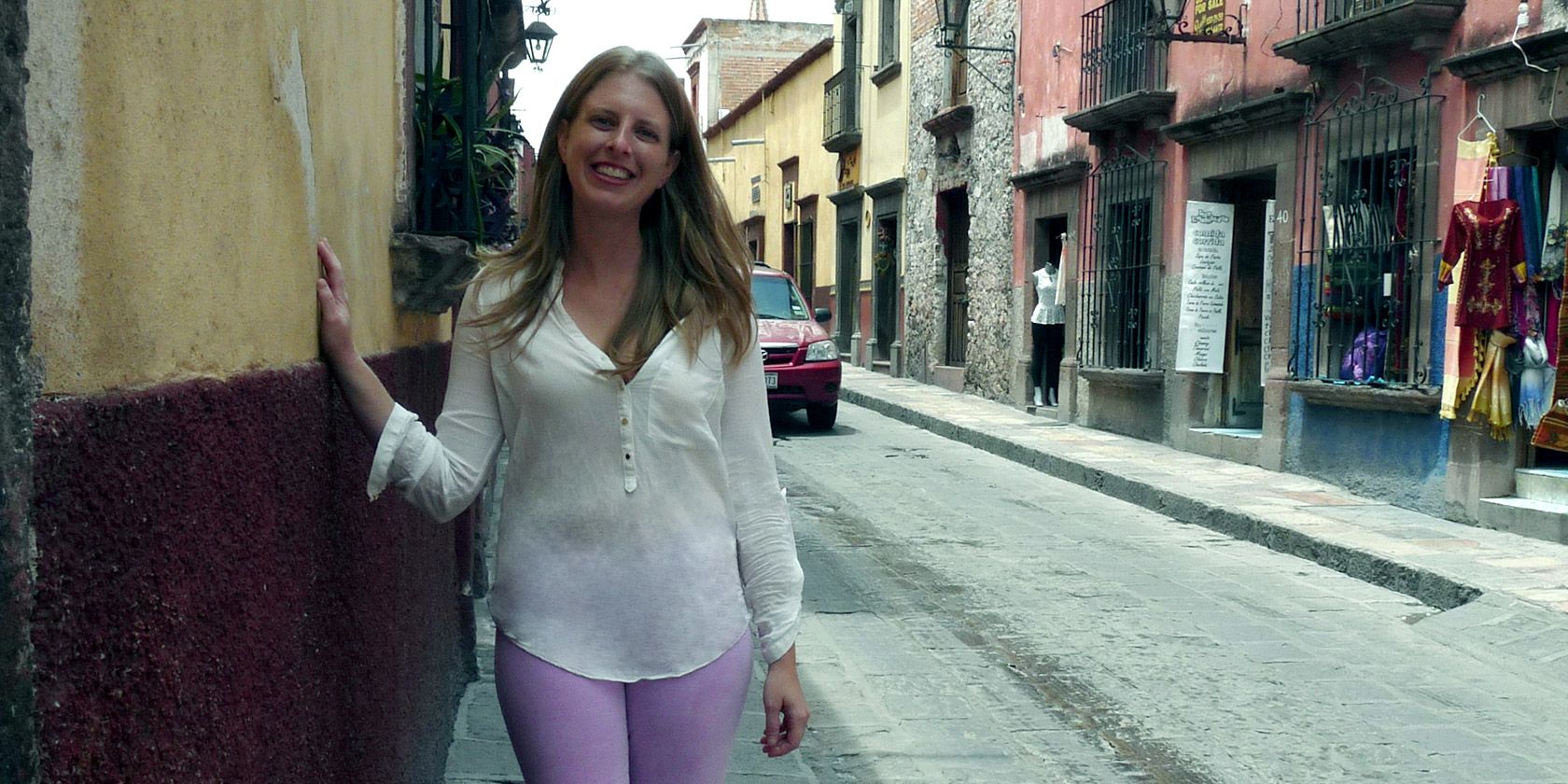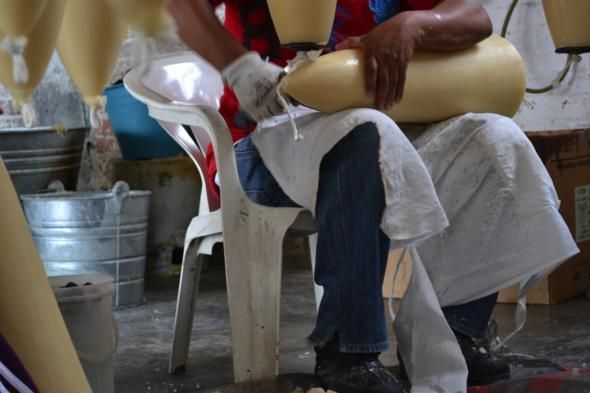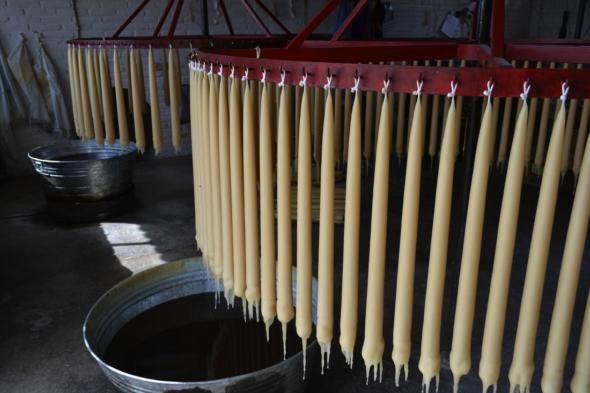A year ago Kelly James was wrapping up her time in the prestigious TechStars Boulder startup incubator, pitching her consignment web application to investors in New York City and Los Angeles.
Now she's living in Mexico, selling candles, and loving it.
"I don't want to be a part of the hype," James says. "I don't feel the need for that anymore."
She has gone from being a plugged-in startup head to ditching her iPad, quitting Facebook, and otherwise trying to figure out the pros and cons of her relationship with technology. She's also started a new brand, Cera Company, which sells handcrafted candles from her current home of San Miguel, Mexico.
The startup life wasn't all bad: "The people you meet are awesome," she says.
But life is better now.
"I'm more content, and I think it's because I'm not having to raise venture capital," says James. "I have a bigger vision [than candles], but it's something that I have to play by ear -- and something that I can afford to play by ear without the pressure of raising money 'while you have momentum'".
The Cluttered Life
Stop me if this sounds familiar.
"I had my computer, then I was constantly checking my phone, even while I was driving. Then I would get home and be back on my computer. I kept chargers in different locations because I was back and forth so much that I didn't have to waste time carrying them between places. When I would go to bed, which was pretty late, I would have my iPad in the bed."
That, says James, was life before the decision to unplug -- cluttered.
"Startups are all like 'we're changing the world', and 'technology is so great for us', but I just came to this realization that it's not as great as it's promised to be," she told me. "At least, not for personal happiness and well being."
It's become a sub-genre of technology blogging: "What happened when I stopped using the Internet for a while". Yet when I saw James' "I'm back" post (since taking herself offline), something stood out. Maybe it's the contrast with the plugged-in startup lifestyle she led in Boulder. Maybe it's the symbolism of the switching from software development to artisan candles. Or maybe it was her commitment to doing something so few of us do: thinking about her relationship to technology.
"One of my new years resolutions was to be more connected to life," she wrote. "In order to do this I needed to disconnect from my digital life."
So James minimalized. She deactivated her Facebook account. She ditched electronics she didn't actually need ("RIP iPad", she wrote). She stopped bringing her phone with her everywhere, and when she did she didn't check her email.
"Like many others I realized that I had an unhealthy relationship with the way I used and consumed social media," she wrote. "I felt more isolated, depressed, and burned out than ever before."
The TechStars Experience
James moved to Boulder, Colorado in early 2012 with her startup 27Perry after being accepted into TechStars Boulder -- a technology accelerator with a lower acceptance rate than Harvard Business School and a success rate of 90 per cent [Broken URL Removed] by their own metrics.
27Perry, as it turns out, was among the 10 per cent -- the consignment web platform shuttered early this year. But while James was building the company there was a constant need to be plugged in.
"Because you're such a small team...if a customer writes and is upset, there's a sense of urgency to resolve that matter," she said. "Even while I'm driving, I'm obviously not working but I feel the need to check my email to make sure I'm not missing anything, to make sure nothing is blowing up."
James is quick to say the problem is not unique to TechStars alums, or even startup companies. Every job she's had required this kind of connection. But it's hard to deny that part of the culture of many small software companies is constantly working.
"I think I just exhausted myself...but still felt that need to be connected all the time," said James. "I wasn't unhappy, but I thought that something was off about that."
What started as a necessity, however, soon turned into a habit -- so when 27Perry shut down, James stayed plugged in.
"I was still in this habit of being on Twitter and Facebook and checking email constantly," she said. "I wasn't even doing anything productive a lot of time...it was one big time suck."
And so, around New Year's, James cut off the Web.
"I thought my life had become too cluttered," she tells me.
Bound For Mexico
Not long after that James moved to San Miguel, Mexico -- an expatriate-friendly college town 300 miles from Mexico City. It's a place James has a history with. Her parents have long run a business there, so it wasn't a random place for her to move.
The candles sold by Cerra are meticulously made here, using a process that dates back centuries.
"There's a different quality that you notice in handmade candles," James tells me. "If you flip the candles to the bottom you can see the craftsmanship at work."
The craftsmanship is visible as rings; not dissimilar to those seen when a tree is cut down. Most modern candles are made by pouring liquid into a mold; Traditional candles, by contrast, are made layer-by-layer. Wicks hang on a candle wheel and wax is poured over them until the desired thickness is achieved, leaving the distinct rings.
James mentions this multiple times, pointing out the uniqueness of hand-crafted candles. It's about as far from a technology startup as I can imagine.
"I did really want to work with physical products, products that were high quality," she tells me. "These candles are the starting point for that."
On Dropping Facebook...Forever
James is still deciding which technologies will and won't be part of her life, but there's one she cut off completely earlier this year: Facebook.
"Facebook immediately made me unhappy again," she said about re-joining. "There was a noticeable difference after I would log off of Facebook, so I've permanently deactivated now."
In general, she says, life without Facebook is better.
"I have fewer 'friends', but better relationships -- and that's one thing that I really wanted," she tells me, adding that the information shown in Facebook can make you feel down.
"Most people people post only the best moments of their life," she said. "So you see all these amazing things and you feel like you're missing out on something."
Should Facebook worry about losing users? Well, all this was back in March – when I asked in July, she had re-connected but "rarely checked the site." The siren's call was apparently too much, but James is quick to say she's careful about how she uses the site.
"Everyone's time is really valuable," she says, "And I don't think we realize how much time we use things that aren't adding value."
From Code To Candles
Selling candles is different than starting a web startup. The way the Internet works means startups need millions of regular active users, quickly -- or risk falling behind competitors.
"With a lot of software companies if you have 5000 users you're not making a dime," says James. "I wanted to do something where I could pay people and get to sustainability faster."
Selling an actual product, instead of attracting clicks, makes that simple: you only need enough customers to cover the cost of operations. There's no need for instant exponential growth.
Despite her transition, James is quick to say good things about startup culture, her time spent on 27Perry, and TechStars.
"I'm so happy I had that experience that I loved so much," she tells me. "I couldn't be doing what I've done now had I not done what I did with my tech startup."
But selling candles means she can focus less on metrics and more on individual customers. And she's okay with that.
"I think really, at the end of the day, that's who you have to make a product for: an individual."






